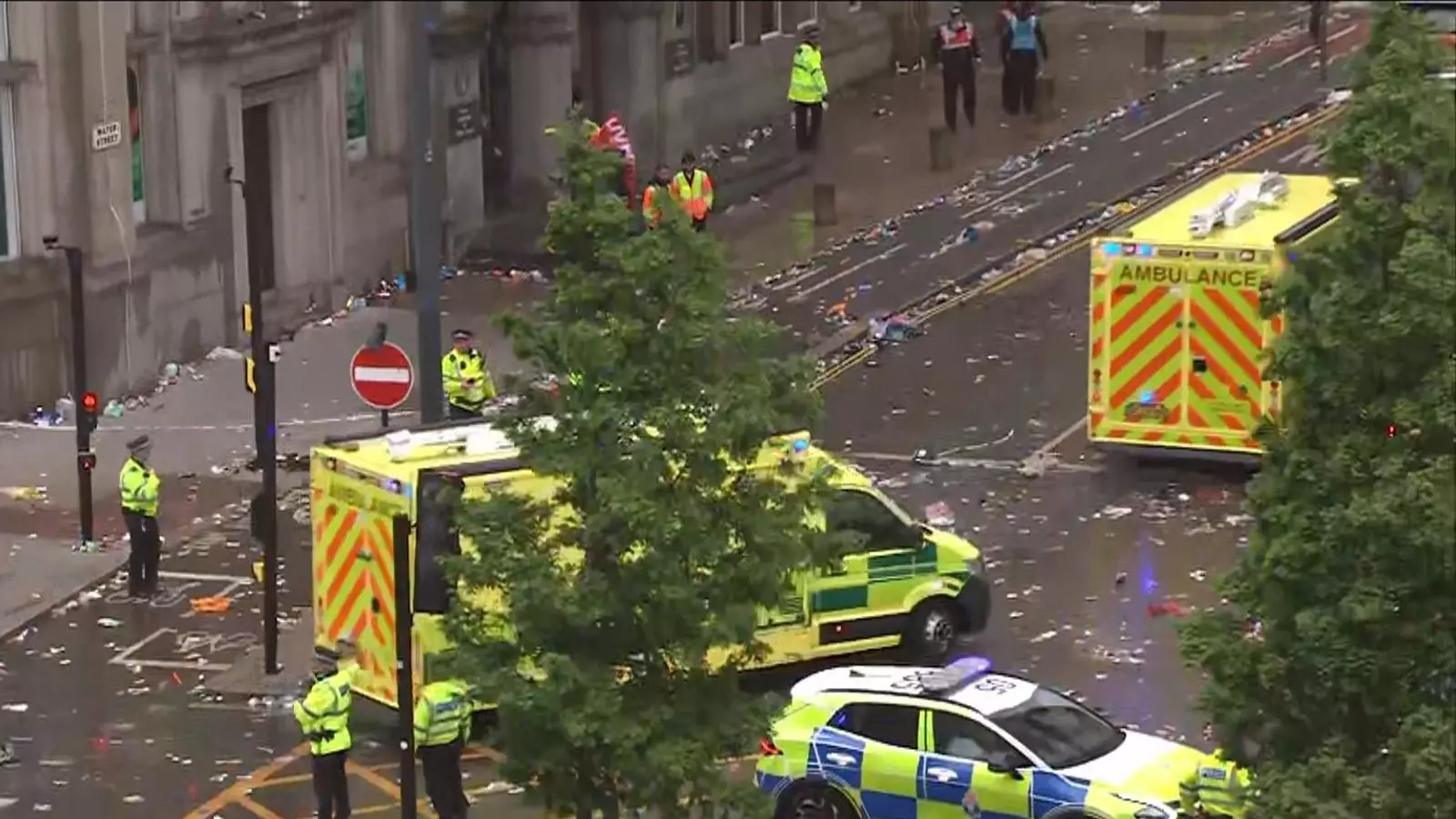Liverpool was alive with jubilation, a city celebrating the triumph of its beloved football club after a monumental Premier League title win. However, this atmosphere of joy quickly soured into horror, as the vibrant streets transformed into a scene of chaos. A car, in a heart-stopping moment, collided violently with pedestrians, marking a stark contrast to the festive atmosphere. The ease with which such a tragedy erupted reveals deep vulnerabilities within our public gatherings and evokes questions about safety and accountability in moments meant to foster community spirit.
A day that should have been inscribed with laughter and cheers morphed into one of panic and despair. Eyewitness accounts paint a harrowing picture. Natasha Rinaldi, who watched the parade from her friend’s window, described the fear that echoed on the streets as screams tore through the revelry. How could such barbarity invade a day that was dedicated to celebrating community and happiness? Instead, it highlights an ugly truth of our times—how quickly joy can be eclipsed by fear and violence.
Ritual of Remembrance and Responsibility
A father, Harry Rashid, alongside his wife and children, stood scarcely ten feet from the unfolding nightmare. His description suggests not just a freak accident, but rather an act that appeared calculated and deliberate. “It looked clearly deliberate,” he noted, as he described the driver’s reckless maneuvering. Such sentiments resonate deeply, as they reflect a broader societal concern regarding instances of vehicular violence. This is a reminder that every public space, increasingly filled with celebratory spirits, can also harbor unwelcome threats.
While the investigation is ongoing, questions remain about the driver’s motives and the lapses in preventive measures that could have safeguarded attendees. The inadequacy of protective barriers or the vigilance of law enforcement at large gatherings brings to light a pressing issue in our society: the balance between celebration and security. How could responsible authorities mitigate such risks in future celebrations, ensuring that joy remains unmarred by violence?
Politicians Speak, but What Changes?
In the wake of such a shocking episode, words of sympathy from political figures flow freely. Prime Minister Keir Starmer characterized the scenes in Liverpool as “appalling,” echoing the sentiments felt by countless citizens. However, how often do these expressions serve as mere platitudes without translating into tangible action? We need our leaders to advocate for more than just thoughts and prayers—this is an opportunity to galvanize systemic change.
The public grapples with a profound dissonance; there is a yearning for accountability. We expect our leaders not only to respond in times of tragedy but also to champion change that would prevent such occurrences in the future. This incident calls into question the alignment of words and deeds—how many times have we witnessed politicians offering condolences without implementing strategies to enhance public safety?
The Ripple Effects on Community
Beyond the immediate trauma lies the broader sociocultural impact of such tragic events. Communities are woven together by shared experiences, and moments of connectivity are easily disrupted by acts of violence. The aftermath of an event like this stretches far, influencing not only the victims but also the witnesses, their families, and indeed, the collective psyche of a city. Liverpool’s spirit—a tapestry of resilience and communal pride—must be fortified against such fears that threaten to tear it apart.
This ugly incident exposes a fracture of trust between the public and the institutions meant to protect them. As the nation reels from this dreadful occurrence, the community of Liverpool stands at a crossroads. How can we reconcile our desire to celebrate together with the imperative to feel safe? Each festival, parade, and gathering must evolve to ensure that they don’t just celebrate culture and unity, but also embody safety and vigilance.
The heart of Liverpool now faces a pivotal moment. A concerted effort from both the community and its leaders is necessary to transform this pain into a catalyst for necessary change. Together, they must demand that the joy of celebrating life triumph over the darkness of violence, ensuring that no parade is ever marred by tragedy again.

